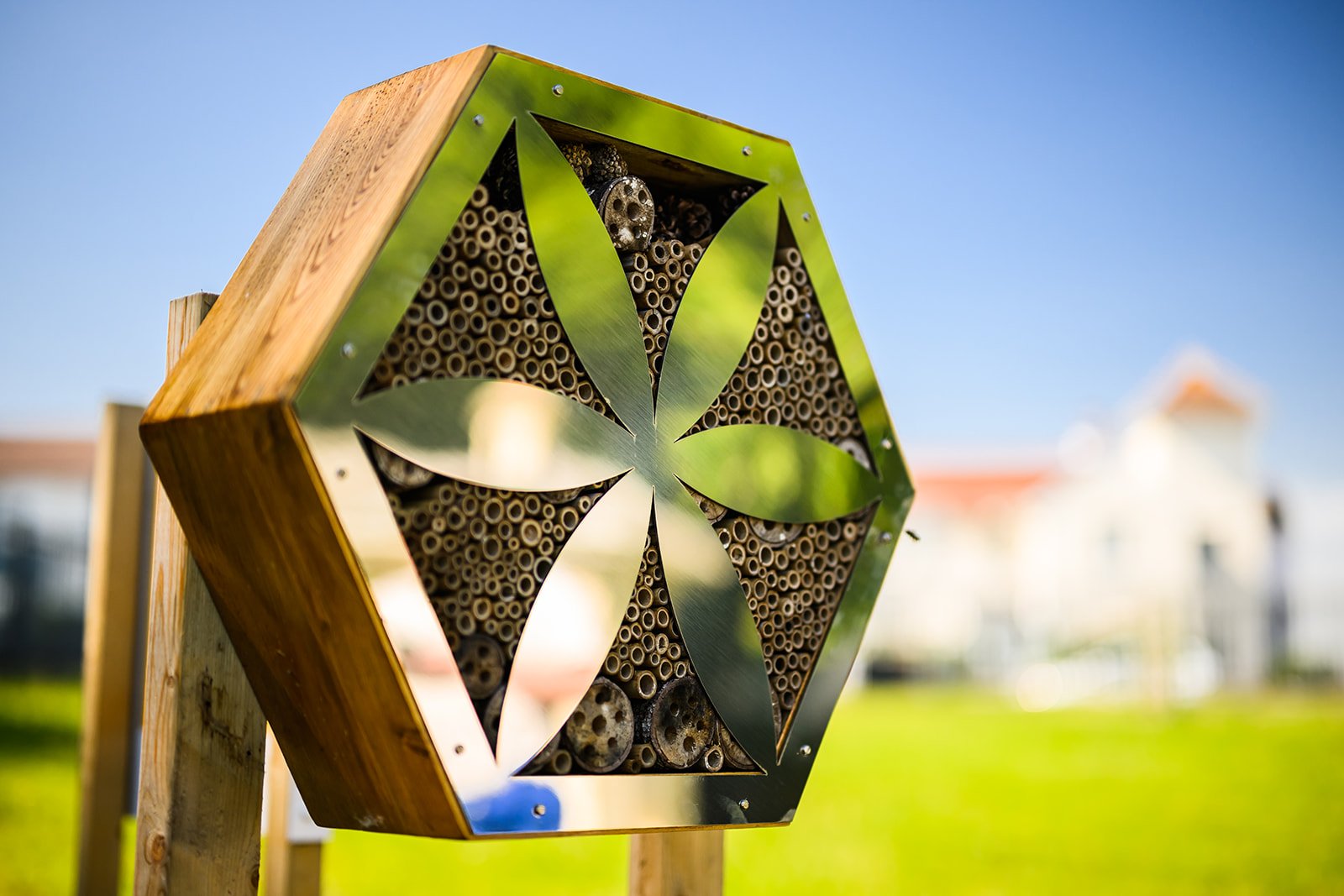This project was focussed on developing and enhancing the initiatives of three established social enterprises: Common Flora, located near Deptford, Pollenize, and Food in Community.
We established 10 solitary bee hotels and 10 wildflower patches across Devon, comprising a blend of 5 urban and 5 agricultural locations.
Pollinators and healthy soil, critical to all life are in decline because of human activity. This project shows we can return to an abundant natural ecosystem by collectively tapping into human generosity of spirit. Reaching into and combining communities; people who are vulnerable or on a low income, farmers (conventional and organic) and urban dwellers (including asylum seekers and refugees). Find out more about the Abundant Life Project.
ABUNDANT LIFE PROJECT
In the UK we have around 267 different species of bee. Just one of these is our native honey bee and only 25 are bumble bees.
The other 90%, around 240 species which are often overlooked, are known as solitary bees. These bees do not live in hives nor have a queen. They are non-aggressive and safe to have around children and pets.
Solitary bees are often specialist pollinators; some data suggests they are two to three times more effective at pollinating than honey bees. With solitary bees making up over 90% of the bee population they are absolutely essential to supporting healthy ecosystems and food chains, including ours.
WHAT ARE SOLITARY BEES?
Insects or Bug hotels are man-made structures, often with small compartments and made from all sorts of different materials. Bug hotels benefit lots of different types of insects such as beetles, centipedes spiders and woodlice, all of which perform important functions for boosting biodiversity.
Bug hotels offer a safe habitat for bees and insects to lay their eggs, raise offspring, feed and to seek refuge from predators.
Bug hotels are a wonderful addition to any garden, park, or outdoor space!










